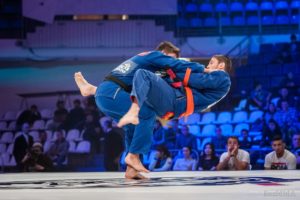I wrote the following a couple of years ago, but unfortunately the need to revisit the concept is stronger than ever. Recently listening to people with zero knowledge in the use of an edged weapon for self-defense saying what people should carry, or a stand up “combatives” specialist try to show how to handle an entanglement just makes me ill. So I bring this one back up.
One of the great advances in the study of fighting in the self-defense/tactical firearms realm over the past 15 years or so has been the acceptance of the concept that fighting is not one dimensional. Just because you can shoot a pistol or rifle really well in no way means you are prepared to fight to protect your life. On the contrary, now we understand that the study of such activity requires, in addition to firearms skill, the ability to have a functional pre-fight threat containment strategy (including de-selection, de-escalation, knowing how violent criminal actors think and act, verbal judo, etc), strength and conditioning, empty hand fighting ability (both standing and on the ground), blade and impact weapon, less lethal tools such as OC spray, traumatic medical care, and most importantly, how they all work together. In short, rather than a single dimension, we have to be integrated, multi-disciplinary tactical thinkers.
That is an awesome and welcome shift in our collective conceptual outlook, because it makes us better prepared to actually survive worst case scenarios and prevail. However, one drawback to this is the tendency on some instructors’ part to suddenly advertise that they are able to teach everything across the board – that they are, in effect, one shop stops for knowledge.
The simple fact is that this is nearly impossible. The sheer denseness and chaotic-ness of the totality of combat precludes almost any single person from being an expert in every field. There may be some who are great in a few areas, and have experience in some or even all of the others, but to do so with enough depth and breadth that they can teach material? Sorry, it just does not work. Instead of staying in their individual lane(s), they seem to feel that if they don’t project the aura that they know everything about everything, people will stop listening to them. So they then start teaching and offering coursework in areas they are clueless in, or start offering commentary on the viability of others who are actually knowledgeable in another area.
Take the example that everyone in the tactical firearms community is probably familiar with – a person who has served in the military in the past 15 years and has involved in real world violence over and over again during the current Global War on Terror. Perhaps they have even served with one of the Tier One Specops units like Delta or the Navy SEALS. Without a doubt, this person knows how to run a rifle, understands fighting mindset, knows team CQB room fighting and open field warfare. Maybe they even were the medic for their unit so they have a solid background in trauma care. Perhaps his unit was one that did some specialized work and used pistols in combat. This person leaves the military and starts teaching to make a living. Now, in those areas discussed above, this person is without a doubt a Subject Matter Expert (SME) and can pass on incredibly valuable lessons. Does that mean he also knows the ins and outs of the realities of concealed carry? What if he spent his entire career in a uniformed capacity? Can he understand what it is like to have to operate daily (not on one and done occasions) in a Non-Permissive Environment (NPE)? What if he starts teaching courses and writing articles on strength and conditioning? What training has he had in that? Just because he himself is in good shape and works out a lot does not mean he has knowledge that everyone else can benefit from. What about knife work? Contrary to what the movies like to portray, the list of combat soldiers that used a bladed weapon on an attacker are far and few between. And don’t even begin to think that there is much instruction or training involving knife work being officially taught to any big time military unit.
A case in point in how to conduct yourself is Kyle Lamb, formerly of Delta. Kyle is a terrific shooter, and decorated and experienced combat vet. His lectures on mindset are phenomenal. His understanding of shooting tactics and running rifles or pistols are at the highest level. Do you know what he never teaches? H2H. Even though he had some Army Combatives training, he knows he is not at a level where he would be comfortable teaching others. And that has not affected how great a fighter or instructor he is. An instructor does not have to be a jack of all trades.
Another glaring example of the exact opposite way to conduct yourself is in the specific world of hand-to-hand combat. Since the Gracie family burst on the scene publicly in the late 80’s and forced everyone to concede that ground fighting is not only a possibility, it may very well be a definite in a fighting scenario. At first, the martial arts world tried to show ways that they could defeat the grappler and never go to the ground (I still have a number of old martial art magazines filled with articles that are laughable in their ignorance on how much of a nightmare an experienced, trained grappler can be), but with years and years of not just Mixed Martial Art (MMA) events like the UFC, but real world video footage that show lots of fights go to the ground, the realization has set in that you better know how to handle it if you do find yourself on the ground. Unfortunately, this has given rise to a number of instructors who try to shroud themselves in the mantle of “expertness” when they have spent little if any time studying grappling. So this person who offers excellent instruction when the fight is upright tries to teach groundwork and makes fools out of themselves. And more importantly, passes on info and techniques that could very well get a good guy killed.
If you cannot point to any serious time in training grappling with specific and exact instructor or gym, and only throw around vague hints that you did this and that, but with no proof, don’t put out videos showing your answers to the ground when all you do is look ridiculous with techniques that are demonstrably idiotic.
To sum up, just stay in your lane. If you are truly an expert in that lane, no one will care if you are not an expert in all of them. That won’t diminish you in any way shape or form. What will diminish you is teaching or talking about stuff you have no clue about. So just don’t.


